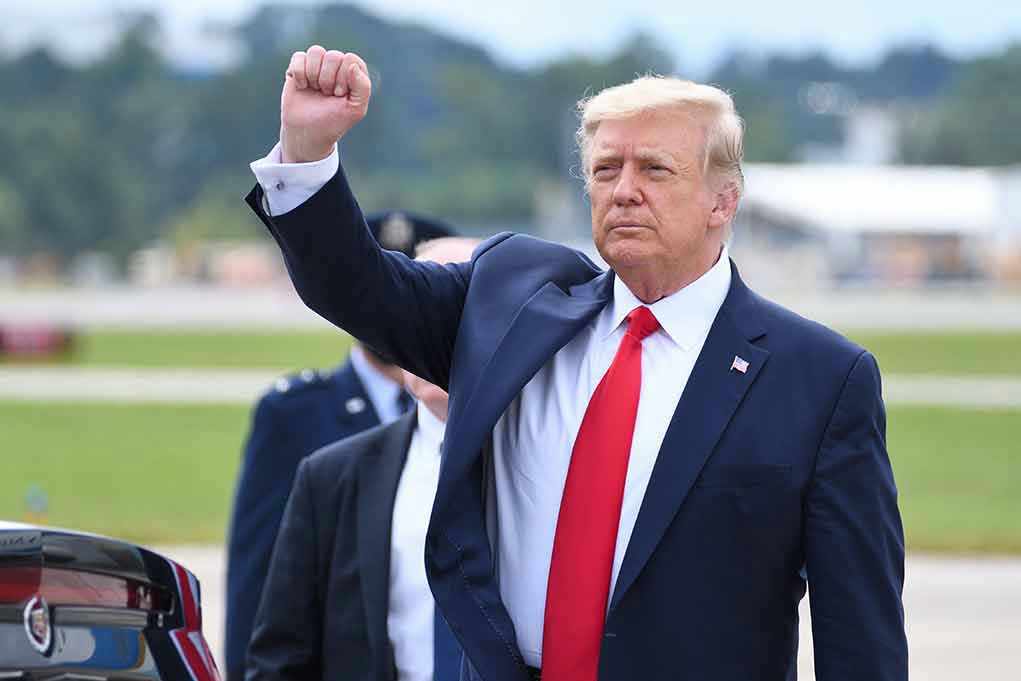
A prominent Democrat’s public reversal on Trump’s trade tariffs has ignited a fierce debate in Washington, marking a rare moment of bipartisan agreement on one of the nation’s most contentious economic policies.
Story Snapshot
- Senator John Fetterman admits Democrats were wrong about Trump’s tariffs, calling them “absolutely” effective.
- Fetterman’s remarks come as President Trump enacts sweeping new tariffs and secures a landmark trade deal with the European Union.
- The Democratic Party faces internal divisions as economic data and public opinion shift on protectionist trade measures.
- Experts and party leaders continue to debate the long-term costs and benefits for American industry and consumers.
Fetterman Breaks Ranks, Backs Trump’s Tariffs
On August 2, 2025, Pennsylvania Senator John Fetterman, a leading national Democrat, publicly acknowledged his party misjudged President Trump’s trade and tariff policies. In a candid interview with Fox News Digital, Fetterman admitted, “Absolutely, [Trump] is winning the trade war,” adding that Democrats were wrong to claim tariffs would tank the economy. Fetterman specifically pointed to the positive outcomes of Trump’s aggressive tariff actions and credited comedian Bill Maher for helping shift Democratic perspectives by acknowledging that dire predictions about the economy had not materialized. His comments mark a significant break from years of Democratic opposition to tariffs and have sparked intense debate within the party and among trade experts.
Fetterman’s remarks landed just one day after President Trump signed a series of new executive orders increasing tariffs on Canadian imports from 25% to 35%, citing the country’s failure to curb fentanyl shipments into the United States. The president also modified reciprocal tariff rates for several other countries, aiming to level the playing field for American manufacturers. These decisive actions have further polarized lawmakers, with Fetterman now standing as a rare Democratic voice in support of the administration’s trade agenda.
Trump’s Tariff Strategy Redraws Global Trade Landscape
Trump’s renewed focus on tariffs in his second term has led to sweeping changes in U.S. trade policy. On August 1, the White House finalized a major trade agreement with the European Union, imposing 15% tariffs on nearly all EU exports while securing $600 billion in new EU investment on American soil and $750 billion in U.S. energy purchases by the EU. The administration frames these moves as necessary for national security and economic fairness, arguing that years of one-sided trade have disadvantaged American workers and undermined domestic industries. Congressional Democrats, led by figures like Senator Elizabeth Warren, warn that U.S. trading partners could retaliate or seek more reliable alternatives, threatening America’s long-term global standing. Despite these warnings, the U.S. economy has proven resilient, with manufacturing and energy sectors reporting gains since the new tariffs took effect.
Experts remain divided on the wisdom and sustainability of Trump’s approach. Some economists argue that tariffs provide essential breathing room for domestic industries, while others warn that protectionism risks long-term inefficiencies and higher costs for consumers. The U.S.-EU deal, in particular, is seen by many analysts as unusually favorable to American interests, though questions linger about whether such advantages can be maintained as global alliances and supply chains shift. Fetterman’s unexpected endorsement of tariffs has emboldened some Democrats to reconsider their positions while intensifying internal party debate as the 2026 midterm elections approach.
Democratic Party Faces New Internal Rift Over Trade Policy
Fetterman’s public reversal has intensified long-simmering divisions within the Democratic Party. For years, Democratic leaders denounced Trump’s tariffs as reckless and economically harmful, warning they would drive up prices and spark trade wars. But as the economic fallout has failed to materialize as predicted—and as the U.S. has secured major concessions from trading partners—some party members now view Trump’s tough stance as vindicated. Fetterman’s comments drew immediate criticism from traditionalists but also found support among centrists and voters in manufacturing-heavy regions who have seen tangible benefits from protectionist policies. Influential voices like Bill Maher, who reversed his own criticism of tariffs, have contributed to this shift in sentiment, suggesting that the political landscape on trade is evolving rapidly within both parties.
The White House has seized on Fetterman’s remarks, highlighting them as evidence of bipartisan support for economic nationalism and a mandate to continue pushing for deals that benefit American workers. Republican leaders have praised Fetterman for putting economic results over party loyalty, while Democratic critics caution that short-term gains could be offset by long-term diplomatic and economic costs. The debate has spilled over into public forums and media, with voters and advocacy groups on both sides weighing in on the future of American trade.
Looking Ahead: Economic and Political Stakes Remain High
With tariffs expanding and the U.S. economy outperforming many expectations, the immediate effects of Trump’s trade strategy have largely favored protected industries and increased government revenues. However, concerns about potential retaliation from trading partners, higher consumer prices, and long-term market disruptions persist. The energy sector is poised for significant growth following the EU’s commitment to purchase $750 billion in U.S. energy, while American manufacturers enjoy reduced foreign competition. At the same time, exporters in Europe and Canada face new barriers, and Democratic critics warn that the U.S. could lose its reputation as a reliable trading partner if trade tensions escalate.
Fetterman’s willingness to challenge party orthodoxy may influence other Democrats to reassess their positions, setting the stage for further debate leading up to the next election cycle. As the administration doubles down on its commitment to American industry and constitutional values—defending economic sovereignty, family-sustaining jobs, and the right to self-determination—readers can expect the battle lines over trade policy to remain sharply drawn. The ultimate verdict on tariffs, both economically and politically, will depend on how these policies play out in the coming years and whether the promised benefits can be sustained without undermining America’s alliances and global leadership.
Sources:
Fetterman Senate Press Releases




